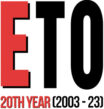On April the 20th the High Court in London ruled in favour of the government in a judicial review of the Digital Economy Act (DEA), which is being rushed in to tackle online copyright infringement. In November 2010 TalkTalk and BT prompted the judicial review by claiming that under EU law the UK Act was not enforceable.
A TalkTalk spokesperson commented: “We’re disappointed that we were unsuccessful on most of the judicial review. We are reviewing this long and complex judgement and considering our options, which may include an appeal to the UK Court of Appeal, or a request that the Court of Appeal make a reference to the European Court of Justice.”
The spokesperson added: “Though we may have lost this particular battle, we will continue fighting to defend our customers’ rights against this ill-judged legislation.”
In their attack on the legislation, TalkTalk and BT both expressed concerns that the costs of alerting the firms’ customers that their illegal online P2P activities were being monitored and could result in fines or disconnection would have to be borne by the ISPs, and in turn, their law-abiding customers as well as the dishonest ones. The judge was sympathetic to their arguments, ruling that they shouldn’t be forced to pay a share of the cost in setting up, monitoring and enforcing the mass notification system.
Nevertheless, under the current DEA law, ISPs will still have to pay a share of the operating costs.
Speaking in support of the DEA, Geoff Taylor, chief executive of the British Phonographic Industry (BPI), said he was “extremely pleased” with the result, adding BT and TalkTalk should not consider any further action: “This confirms that the DEA is proportionate and consistent with European Law. Shareholders and customers of BT and TalkTalk might ask why so much time and money has been spent challenging an Act of Parliament to help reduce the illegal traffic on their networks. It is now time for BT and TalkTalk to work constructively with government and rights holders to implement the Digital Economy Act”.
Representing recording artists, the BPI has been proactive in developing ideas for how a copyright-infringing blocking system could be introduced effectively, and has been discussing this so-called ‘Plan B’ (with Plan A being the DEA) with both ISPs and the government. For the adult industry, this ruling keeps the door open for ISPs to be forced to divulge the names of the owners of IP addresses identified as having illegally shared their content.



![20 years of ETO: Harmony, Charing Cross Road, London [reprinted from issue 1, July 2003]](https://www.erotictradeonly.com/wp-content/uploads/2023/08/NEWS_20YEARS_HARMONY_ISSUE1-238x178.jpg)











